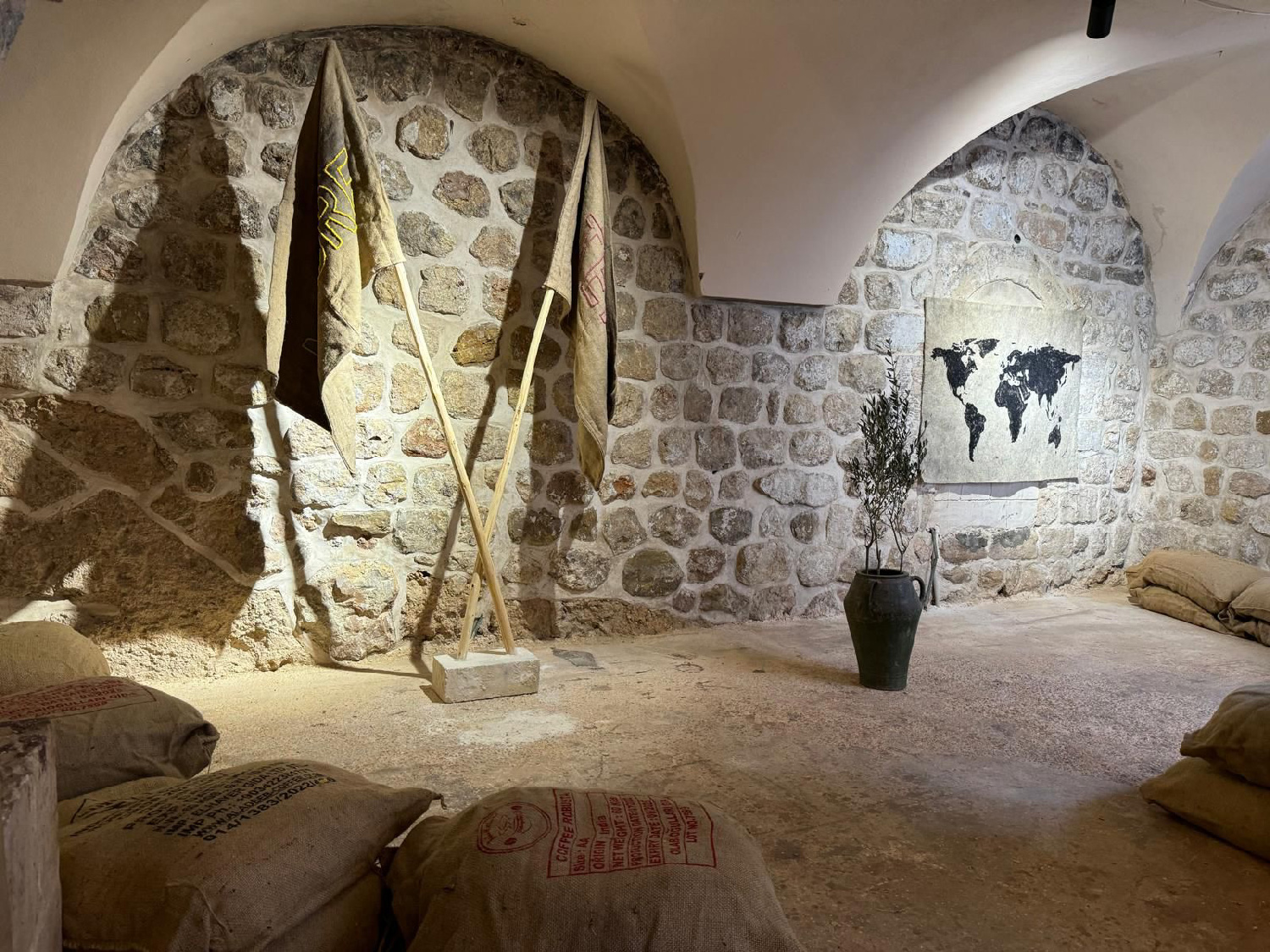
MUSEUM EXHIBITION
Michele Ciacciofera
Mardin Biennale, Turkey
Mardin, Turkey
May. 10 - Jun. 11, 2024
10th Mardin Biennale with an installation of Michele Ciacciofera (curated by Ali AKay)
TERRA MADRE imagines a renewed vision of a democratic and intercultural Planetary Citizenship. It aims to a turning point in the state of the planet which currently tends towards a directionless regression. To hypothesize a positive future for our universe and all its inhabitants, it is ever-more necessary to imagine an alternative conception of the world, based on the centrality of nature and on universal values of sociality, solidarity, active participation and protection of both human health and biodiversity.
The flags and the geographical map, all made with natural materials (wood, jute, natural wool), are emblematic of a new politics, renouncing the obsession with identity and national particularities.
The jute bags filled with products of the earth, reveal the abundance and vitality that exists within the planet.
They are arranged in the form of an hemicycle, inviting spectators to gather for a reflection that cannot be postponed, emphasizing the expression of a 'WE'. At the center of the scene is the symbol and messenger of peace and reconciliation, the olive tree, rising to the role of an altar of the universal values that the work recalls.
Spectators are invited to enter the area delimited by the bags, which constitutes an amphitheater, and to sit in a convivial manner drinking tea which will be served for the entire duration of the biennial. In this way the public will contribute to the representation of the participatory dimension that the work wants to convey.
10e Biennale de Mardin avec une installation de Michele Ciacciofera (sous la direction d'Ali AKay)
TERRA MADRE imagine une vision renouvelée d'une citoyenneté planétaire démocratique et interculturelle. Elle vise un tournant dans l'état de la planète qui tend actuellement vers une régression sans direction. Pour envisager un avenir positif pour notre univers et tous ses habitants, il est de plus en plus nécessaire d'imaginer une conception alternative du monde, basée sur la centralité de la nature et sur des valeurs universelles de socialité, de solidarité, de participation active et de protection de la santé humaine et de la biodiversité.
Les drapeaux et la carte géographique, tous réalisés avec des matériaux naturels (bois, jute, laine naturelle), sont emblématiques d'une nouvelle politique, qui renonce à l'obsession de l'identité et des particularismes nationaux.
Les sacs de jute remplis de produits de la terre révèlent l'abondance et la vitalité de la planète.
Ils sont disposés en forme d'hémicycle, invitant les spectateurs à se rassembler pour une réflexion qui ne peut être différée, soulignant l'expression d'un "NOUS". Au centre de la scène se trouve l'olivier, symbole et messager de la paix et de la réconciliation, qui joue le rôle d'autel des valeurs universelles que l'œuvre rappelle.
Les spectateurs sont invités à entrer dans l'espace délimité par les sacs, qui constitue un amphithéâtre, et à s'asseoir de manière conviviale en buvant le thé qui sera servi pendant toute la durée de la biennale.

